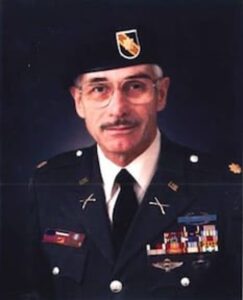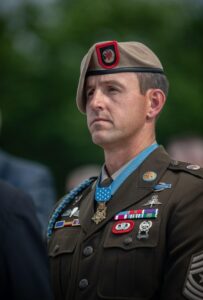For the past 243 years, the United States Navy has fought each and every day to keep this country safe. Congress  established the Department of the Navy in April of 1798, but the “shield” of our republic had already been active for 23 years, since this day in 1775 when a naval force was formalized by resolution of the Continental Congress. Of the millions of brave men and women who have served in the Navy, 749 have received the nation’s highest honor – the Medal of Honor. Today, in celebration and gratitude for their service we would like to recognize four outstanding Navy Medal of Honor recipients.
established the Department of the Navy in April of 1798, but the “shield” of our republic had already been active for 23 years, since this day in 1775 when a naval force was formalized by resolution of the Continental Congress. Of the millions of brave men and women who have served in the Navy, 749 have received the nation’s highest honor – the Medal of Honor. Today, in celebration and gratitude for their service we would like to recognize four outstanding Navy Medal of Honor recipients.
Edward Byers is one of two living Medal of Honor recipients still on active duty. Chief Special Warfare Operator (SEAL) Edward C. Byers Jr. was awarded his Medal of Honor for his actions during Operation Enduring Freedom on December 8, 2012. Chief Byers was part of a rescue team in Afghanistan. As the rescue team approached the compound, the guard noticed them immediately began firing on the rescue team. Recognizing the acute danger inside the room they were supposed to enter, Chief Byers entered and, among the confusion, identified the hostage. Chief Byers shielded the hostage with his body while still managing to attack enemy forces during the successful extraction. Chief Byers was awarded the Medal of Honor by President Obama for his actions on that day and continues to serve this country as a member of the Navy.
William McGonagle was sailing into international waters during the Six Day War when his ship was attacked without warning by jet fighter aircraft and motor torpedo boats which inflicted many casualties among the crew and caused extreme damage to the ship. Although he was severely wounded from the initial air attack, Captain McGonagle remained at his battle station. Although severely wounded, Capt. McGonagle refused to leave his post to receive medical attention. He continued to command his ship and maneuvered the ship to safety, all while caring for the wounded and supervising the control of flooding and fire. Capt. McGonagle remained at his battle station and continued to command his ship for more than 17 hours. It was only after encountering a U.S. destroyer that he relinquished personal control of the ship and permitted himself to be removed from the bridge. Even then, he refused much needed medical attention until convinced that the seriously wounded among his crew had been treated. Captain McGonagle was one of the very few recipients who did not receive his Medal from a President, he was awarded the Medal of Honor from the Navy secretary for his heroic actions on that day.
John Henry Lawson was a US Navy sailor who received the Medal of Honor during the Civil War. While serving on the U.S.S. Hartford, Lawson and the other sailors were attacking Fort Morgan when an enemy shell killed and wounded the six-man crew – violently throwing Lawson across the side of the ship. As the shell did damage to the deck of the U.S.S. Hartford, Lawson, “regained his composure, promptly returned to his station and, although urged to go below for treatment, steadfastly continued his duties throughout the remainder of the action.”
Richard Nott Antrim was a Japanese prisoner of war in April 1942 after being captured during the sinking of his ship. While in custody, Lt. Antrim and his fellow allies received brutal punishments for breaking minor rules. One day, after seeing a man sentenced to 50 lashes lose consciousness after 15, Antrim stepped in. Lt. Antrim stepped forward and said “I’ll take the rest.” The Japanese officer in charge was astounded at Lt. Antrim’s selflessness and from that moment forward, treated the prisoners with more respect and reduced harsh punishments. Lt. Antrim’s actions saved a fellow soldier’s life, as well as his own. He and the other prisoners were released in 1945 at the end of the war. He was awarded the Medal of Honor shortly after by President Truman.
These outstanding men are just four individuals who that served in the Navy. There are many others that have fought, and continue to fight, each day for our freedom. We celebrate them every day, but especially today as we recognize all that the Navy has done for the United States in the past 243 years.

Navigating the Darkest Night | The Courageous Leadership of Rear Admiral Bruce McCandless
Recipient: Bruce McCandless Branch: U.S. Navy Combat: World War II Sometimes fate has a way of showing us exactly where we need to be and


